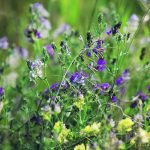A recent webinar by Lactanet’s expert in forage production and nutrition offered tips on how to interpret analyses of ensiled forage. Jean-Philippe Laroche asked participants to have copies of analyses for grass or legume silage so he could relate “what your forage analyses have to tell you and provide solutions” to address shortfalls or problems. […] Read more
 Livestock Management
Livestock Management

Preparing pregnant mares for winter and foals
SASKATOON — Equine reproduction specialist Dr. Claire Card has advice for horse owners caring for pregnant mares this winter. Card, a professor with the Department of Large Animal Clinical Sciences at the University of Saskatchewan’s Western College of Veterinary Medicine, said horses in Western Canada tend to be on the heavy side. “Keeping horses in […] Read more
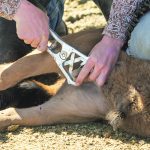
Calf castration requires humane approach, code compliance
The younger, the better when it comes to cattle castration, and proficient techniques will reduce stress and losses in the herd. Band application at birth or at a young age, or knife castration at or before turnout, are the two most desirable ways. The beef code of practice requires pain control for any animal older […] Read more

Just say ‘no’ to Britain
Red meat groups push Ottawa to keep U.K. out of trade deal
Canada’s beef and red meat industry is asking the public for help to prevent the United Kingdom from joining a trade deal. The Canadian Cattle Association, Canadian Meat Council and National Cattle Feeders’ Association launched a campaign Sept. 12 called Say No To a Bad Deal. Their goal is to pressure the federal government so […] Read more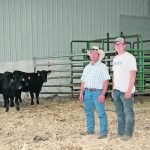
Farm tests heat detection technology
Cow-calf producers in Sask. test ear tags that send alerts to their phone to let them know when cows are ready to breed
PEEBLES, Sask.—A project underway on a Saskatchewan farm is testing technology that determines when a cow is in heat. SenseHub Cow-Calf is new for the beef sector, although the dairy industry has used the technology for a while. Dr. Sam Wauer, associate director of cattle veterinary services at Merck Animal Health, said an Allflex Sense […] Read more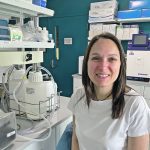
Research centre aims to eradicate hog diseases
U.S. university conducts barn-applicable studies using expertise in its animal science and veterinary departments
ST. PAUL, Minn. — Sometimes the best way to achieve big goals is by addressing lots of small questions. That’s the approach the Swine Disease Eradication Center at the University of Minnesota has taken with tackling the diseases that sicken millions of North American pigs and cost hog farmers and the pork industry billions of […] Read more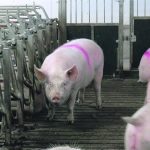
Increase in sow prolapses remains a mystery for sector
Research is ongoing to discover the causes of this condition, and certain pre-prolapse red flags have been spotted
Researchers are trying to find out why prolapses have become a major cause of sow mortality. It wasn’t a big thing 20 years ago, but it’s become one of the main causes of sow culling and the reasons aren’t clear. “It’s a very costly problem for the industry that wasn’t here 10, 12 years ago,” […] Read more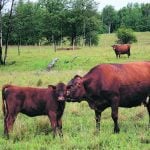
Vital maternal bonding process starts during pregnancy
From what we can tell, dinosaurs didn’t do much of it. Neither do many modern-day reptile, amphibian and bird species. But mammals certainly invest significant time and food resources into rearing young. And the foundation for this critical behaviour is the maternal bond. For wild mammals, the strong bond between dam and offspring is essential […] Read more
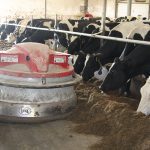
Well-being researchers look for producers
The University of Manitoba is running three studies on how beef and dairy production affect producers across Western Canada. Two studies focus on how beef and dairy producer well-being is affected by farm management and animal health. A third study will assess the impact on producer well-being as they install and adjust to robots on […] Read more
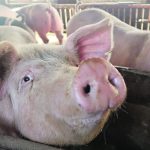
Why are US pig death rates higher?
DES MOINES, Iowa — “Here in the U.S., we are behind all of our global competitors for both sow mortality as well as grow-finish mortality.” That observation, by Kansas State University animal science professor Mike Tokach, produced a simple question: why? It’s not simple to answer, he said during a panel discussion of veterinary issues at […] Read more



 Livestock Management
Livestock Management